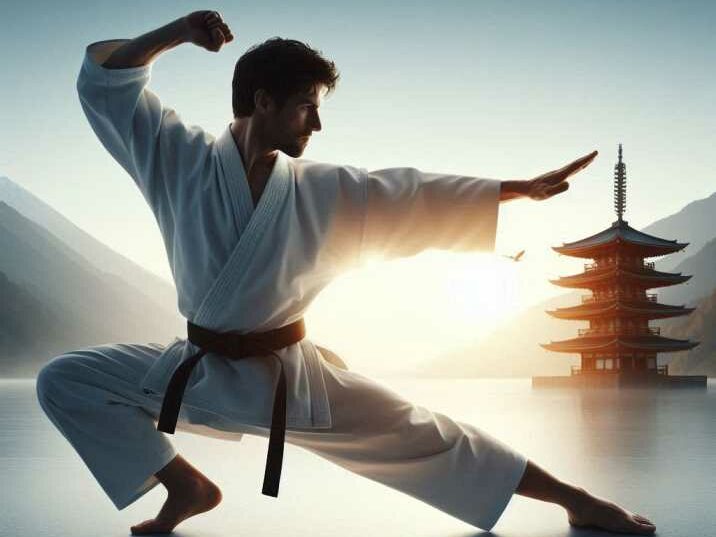Introduction
Table of Contents
In the world of combat sports and self-defense techniques, the terms “karate” and “martial arts” are often used interchangeably. However, are they truly the same, or is there more to these disciplines than meets the eye? Let’s delve into the depths of karate and martial arts to uncover the truth behind this common misconception.

Exploring Karate and Its Origins
Karate, originating from Okinawa, Japan, is a traditional martial art that focuses on striking techniques such as punches, kicks, knee strikes, and elbow strikes. Its emphasis lies on self-defense, discipline, and personal development. Karate practitioners, known as karateka, undergo rigorous training to master various forms (kata) and techniques.
The Diversity of Martial Arts
Martial arts, on the other hand, encompass a broader spectrum of combat disciplines from around the world. These include but are not limited to karate, taekwondo, judo, kung fu, and Brazilian jiu-jitsu. Each martial art has its unique principles, techniques, and cultural significance, making them distinct in their own right.
Is Karate a Subset of Martial Arts?
While karate is undoubtedly a form of martial art, it is essential to recognize that martial arts encompass a wide range of styles beyond karate. Therefore, karate is a subset of the broader category of martial arts, showcasing the diversity and richness of combat traditions worldwide.
Dispelling Common Misconceptions
One common misconception is that all martial arts are the same, which couldn’t be further from the truth. Each martial art has its philosophy, training methods, and practical applications. For example, taekwondo focuses heavily on kicks, while judo emphasizes throws and grappling techniques.
Understanding the Nuances
To truly understand the differences between karate and martial arts, one must delve into the nuances of each discipline. Karate emphasizes striking techniques and kata (forms), while martial arts encompass a broader range of combat styles with varying techniques, philosophies, and cultural roots.
Table of Information about Karate and Martial Arts:
| Aspect | Karate | Martial Arts |
|---|---|---|
| Origin | Okinawa, Japan | Global, diverse origins |
| Focus | Striking techniques, self-defense | Various disciplines, including grappling |
| Training | Katas, striking drills | Forms, sparring sessions |
| Philosophy | Discipline, personal development | Cultural heritage, combat philosophy |
Conclusion
In conclusion, while karate is a form of martial art, martial arts encompass a diverse range of combat disciplines from around the world. Understanding the distinctions between karate and martial arts is crucial in appreciating the depth and breadth of combat traditions globally.
Frequently Asked Questions (FAQs)
- FAQ 1: What are the main differences between karate and other martial arts?
- Answer: While karate emphasizes striking techniques and kata (forms), other martial arts may focus on different aspects such as grappling, throwing, or a combination of techniques. Each martial art has its unique philosophy and training methods.
- FAQ 2: Can anyone learn karate or martial arts, regardless of age or physical fitness?
- Answer: Yes, both karate and martial arts are accessible to people of all ages and fitness levels. Many schools offer classes tailored to beginners, children, adults, and even seniors, allowing everyone to benefit from the physical and mental aspects of training.
- FAQ 3: What are the benefits of practicing karate or martial arts?
- Answer: Practicing karate and martial arts offers numerous benefits, including improved physical fitness, self-discipline, confidence, stress relief, and self-defense skills. It also promotes mental focus, concentration, and overall well-being.
- FAQ 4: How long does it take to become proficient in karate or martial arts?
- Answer: The time it takes to become proficient varies depending on factors such as dedication, training frequency, and individual progress. Generally, consistent practice over several years is required to achieve a high level of skill and mastery.
- FAQ 5: Are there competitions or tournaments in karate and martial arts?
- Answer: Yes, both karate and martial arts have competitive aspects, with tournaments held at local, national, and international levels. These competitions allow practitioners to showcase their skills, compete against others, and strive for excellence in their respective disciplines.


